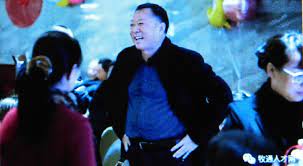Zhang Dewu, chairman of the Xiangda Group, has been sentenced to 13 years in prison under several charges — including “picking quarrels and provoking trouble”, illegal detention, bid-rigging, loan sharking, and gathering a crowd to storm a state organization. He was also fined 60.13 million yuan.
The public has quickly connected Zhang’s case with that of Sun Dawu, a prominent Chinese agricultural billionaire, who was sentenced to 18 years in prison under the same charges last year.
Zhang and Sun were both private entrepreneurs who came from humble beginnings and developed their small grassroots operations into sprawling conglomerates spanning several industries in China.
Zhang and a number of executives from Xiangda Group were detained by police in late 2019. On the day the verdict was announced, the company issued a statement expressing its dissatisfaction and plans to appeal. The statement read, “The management of the Group disagrees with the factual findings, application of the law, and proceedings of the first trial. We regret that Mr. Zhang Dewu was re-sentenced in retaliation after he was cleared of any wrongdoing.”
Chinese state-run media were virtually silent on the case. Caixin.com reported on March 8 the results of the verdict and listed arguments used by the prosecution and defense teams as well as the court’s ruling, but made no further comment. Other than that, no other reports can be found in any official media in regards to Zhang’s case.
‘Looting the property of private enterprises’
Success
You are now signed up for our newsletter
Success
Check your email to complete sign up
However, widespread messages of support for Zhang were seen across China’s social media. Most comments on Weibo (China’s Twitter-like platform) suggested that the case was carried out unfairly, in similar fashion to that of Sun Dawu. Private entrepreneur Luo Mingzhu said, “There are many cases like this in China, where local governments are systemically and organizationally looting the property of private enterprises in the name of fighting crime. In other words, the local government is in financial difficulty. This is how they are making money.”
Meanwhile, family members of arrested executives from Xianda Group have repeatedly exposed through social media how they suffered inhumane treatment in prison and were sometimes even subjected to torture in order to coerce confessions out of them.
While in detention, Zhang developed severe hyperthyroidism (a condition where the thyroid gland produces too much of a certain hormone and results in weight loss, irritability and irregular heartbeat).
Fan Shenghan, secretary of the party committee of the Xianda Group, was beaten to the point of losing consciousness and was paralyzed on his right side. Gong Yuxin, another executive, was imprisoned in a detention center and was beaten to the point of paralysis and almost lost hearing in his ears.
A predetermined sentence?
The Xiangda Group had previously raised objections to the many allegations placed against them. Last June, while the case was still in trial, the Weibo page for “Xiangda Group” claimed that the task force set up by Zhuxi County of Shiyan city had already decided on a guilty verdict, and then used all means to convict.
At that time, a notice from the Shiyan Public Security Bureau started circulating on China’s social media that the case would be investigated under the “triple chiefs” format.
In practice, this means that the outcome of the case is predetermined in advance. Luo Mingzhu, a Chinese private entrepreneur in California, described the “three chiefs” process as being a corrupt consensus of the public security chief, the president of the court, and the director of the procuratorate. The three officials’ signatures “agree” that the crime has occurred and that “there is no way to overturn it.”
Wang Ruiqin, a private entrepreneur in Washington, D.C., further explained that this sort of case serves as a political theater and is usually carried out at the behest of local Communist Party officials. Specifically, these include the Party secretary, the local Political and Legal Affairs Commission, as well as the law enforcement and courts.
“This case concerning Zhang Dewu fits the profile” of such a fixed legal action, Wang said: “Firstly, it is a political case; secondly, this case has broad impact; and thirdly, it is likely to be a miscarriage of justice.”
While Party authorities getting involved with the trials of political dissidents or religious practitioners is a common occurrence, recently the Chinese Communist Party (CCP) has been targeting private entrepreneurs for their wealth.
“Local government finances are relatively tight, especially recently when the property market is in the doldrums, businesses are closing down, and many local civil service workers are seeing pay cuts,” Wang said.
The fate of Xiangda Group drew quick comparisons to the Sun Dawu case among Chinese netizens.
“It’s almost the same in terms of the circumstances, the magnitude and convictions. When I was reading it, I repeatedly thought to myself, ‘are they sure they aren’t talking about Sun Dawu?’,” said Qin Peng, an economic analyst based in New York.
Sheng Hong, the former director of Beijing-based think tank Tianzhe Institute of Economic Research, who has long studied the political phenomenon known in China as “the state advances at the expense of the private sector” (guo jin min tui), said that the viability of private enterprises being targeted and punished by the regime is extremely concerning.
“China lacks an effective system for the protection of property rights and human rights, and entrepreneurs will be arrested or taken over at every turn, so their personal safety is in jeopardy,” Sheng said.














